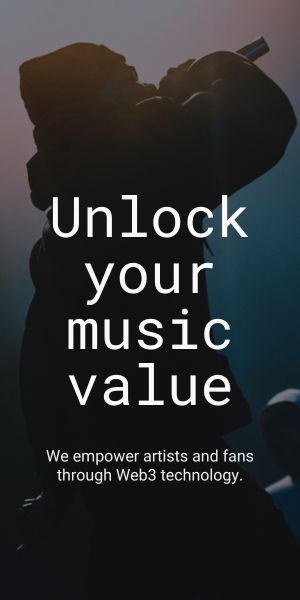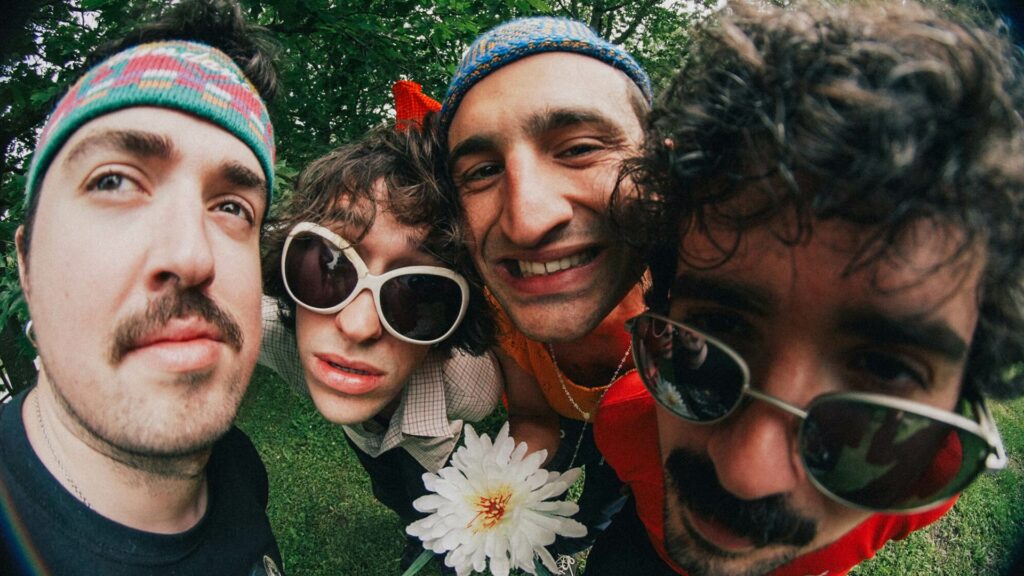I recently had the pleasure of speaking with the multi-talented Karen Vogt, a prominent figure in the ambient and experimental music scenes. Lauded for her poignant soundscapes and mellifluous vocals, Vogt’s artistic vision is profoundly influenced by life’s dynamic impermanence and the pure stillness of Being. These themes not only shape her music but also resonate with a diverse audience across genres such as ambient, drone, dreampop, and shoegaze. In our conversation, we delve into her creative process, her inspirations, and the dynamic evolution of her musical styles. She offers an intimate look at her life as an artist committed to authenticity and internal exploration, in addition to discussing the emotional depth of her seminal album ‘Losing the Sea,’ her upcoming collaborations, and offers sage advice for aspiring soundscape artists alike.
Could you share your journey into music? What initially inspired you to delve into the ambient genre specifically?
Karen Vogt: My journey into music began when my older brother passed away and I inherited his guitar. I was nineteen years old. Time spent noodling about on his guitar made me feel closer to him. I taught myself to play guitar, and eventually found myself humming along and then eventually singing. A private universe opened up to me during those moments. I felt a connection to myself and to the world that went beyond words. Music gave me the shelter that I needed at that moment in my life to feel, process my emotions and express myself.
Ambient music has become a home for all sorts of disparate music. Over the years, I have watched the genre of ambient expand and the lines become blurred. I follow my muse and my instincts, but I can understand why some might associate my music with ambient. The music I make touches on many genres that include experimental, improvisation, soundscape, drone, slowcore, atmospheric, downtempo, dreampop and more. I don’t consciously attempt to fit into any genre, and I enjoy the freedom of making whatever music I am moved to make.
Your album, “Losing the Sea,” is a captivating collage of transcendental harmonies characterised by choral hymns and lush, high-frequency melodies. It is also a deeply evocative title that had initially suggested to me such themes of loss, transformation, or even environmental awareness. Can you share the inspiration behind it in addition to its title and how it reflects the overarching theme of the album?
Karen Vogt: “Losing the Sea” is an intentionally ambiguous title. In those moments when you are wondering what it could mean, there is a possibility to insert your interpretation and your own personal feelings about it. This meaning will shift as you listen to the album. The meaning could be geographical or visual, as you lose sight of it when the road separates and turns away from it. You could be looking out over the sea from an aeroplane and then it eventually disappears. There is the obvious environmental perspective as we witness the damage done by pollution and global warming. But then, if you go a bit deeper, you’ll find a feeling of emotional distance and a disconnection from it.
I long to live near the sea, after having grown up on a peninsula that was surrounded by it with front and back beaches. I felt so close to the sea when I was growing up, but in recent years it’s sadly been on the fringes of my world. For me, the title expresses a sense of not having lost it yet but feeling like it’s slipping away. Living inland and hours away from it means that I only visit it once a year, sometimes twice if I am lucky.
Loss and transformation are themes that run throughout my work. Life is constantly renewing, and things are always changing. Inspiration leads you along a path without knowing what lays ahead. But this is exactly what I love about it. You have to follow your feelings, follow what fascinates you, and let yourself stay in the places where there is lots of emotion. The sea has always been a place full of memories and strongly connected with introspection and reflection. Time stops, stands still and nothing else matters but the sound of the waves or the still calm of the glassy surface. The album is a kind of love letter. An “I miss you” moment to pause and reflect on the things that you love but are no longer in your life. There is a sparseness, but also a late-night intimacy about this album that, for me, sits somewhere between a thought and a whisper.
Interestingly, you emphasised the concept of changeability and impermanence in existence. For me, this immediately elicits Heraclitus’ philosophy of perpetual flux, famously stating that ‘You cannot step into the same river twice.’ With this perspective in mind, how do you perceive the evolution of the experimental, ambient, drone, and soundscaping music scenes over time? What role do these alternative genres play in today’s cultural landscape?
Karen Vogt: Sometimes I feel like it’s all becoming the same mushy, textured kind of stuff. Especially with lots of ambient music. So many tracks these days that sound similar and I can’t tell who the artist is. You hear certain tones and textures that everyone is using – similar to how lots of pop or techno music has the same kind of production. I think there is a danger of things becoming too safe and boring unless artists in these genres start taking risks (myself included) and express themselves as individuals more. I don’t like it when it feels like everyone is trying to do a slightly better version of everyone else and only a few people are off doing their own thing.
Many innovations from these genres you mentioned always tend to make their way into mainstream music, and so it feels more essential to go out on a limb and take full advantage of the creative freedom you do have. It’s also just a lot of fun to try different things and to make music from that curious and adventurous place.
Your journey into music, particularly how you found solace and expression through it after your brother’s passing, is incredibly poignant. How did that emotional connection shape your approach to creating music, and do you find yourself revisiting those feelings in your compositions?
Karen Vogt: The entry point for making my music will always be that moment when I found that solace in those private moments with the guitar and was trying to make sense of my brother’s death. It was like finding a portal, or a little pinpoint of light in the darkness. The more you focused on it, the more it grew. It’s often through painful experiences that our imaginations and emotions become so powerful in order to protect us or cope with the harshness of reality. I feel confident and comfortable with immersing myself in that world because of all the dialogues I have had with myself and my creativity there. I love spending time there and this sense that there is an endless amount of music and art that you can create. Building my body of work has become about what I find there and how I interact with it all.
My approach to creating music is very much about transcending, trying to work things out, reaching for something higher and engaging in an inner dialogue. When you’re inside the song, or the sound – everything makes sense. There is an intimacy to it that feels like you can unfold and be yourself. The sense of being in another state that is out of time and space and the every-day things.
Emotional connection is essential for me to have – to feel it and to be engaged in that creative dialogue. Every time I sit down to make music I go to that inner world and to that place where you follow the feeling and trust in where it’s taking you. I love this creative process and I love that I can’t quite put words to it, because it’s not meant to be understood intellectually – it’s meant to be felt and experienced.
You’ve beautifully described how your music serves as both a portal and a place of deep introspection for you. Reflecting on ‘Losing the Sea,’ you mentioned its themes of loss and transformation, which certainly evoke a late-night intimacy and a subtle sense of reflection. When you envision listeners engaging with your music, what kind of emotional or contemplative experience do you hope they have? Are there specific emotions or thoughts you aim to evoke through your music?
Karen Vogt: I’d hope that my music could become the listeners own kind of portal for them to go a bit deeper into their thoughts. If you think of listening to music as a conversation where the artist is going first, then I think there is an opportunity with each listen for the listener to layer their own meanings onto the music. This is the thing I tend to do when I listen to music. Certain songs contain layers of meaning. Memories of times and experiences I’ve had while listening to them or been reminded of particular details of them. A line, a lyric, a texture, a tone, a note, a mood, a hook, or a title even. They contain memories of trips I’ve taken, people I’ve met and certain thoughts I’ve circled around while listening. It can be a one-on-one conversation. So, I think just the hope that they make it their own container for their thoughts and feelings. But, if I had to narrow it down to one area or word to evoke, then I would probably say humanness.
Can you walk us through your creative process? How do you translate those inner emotions and experiences into the etheric qualities that define your music?
Karen Vogt: I don’t know if I am even fully aware or conscious of all my creative processes. Many things I do without thinking about them too much. I’m instinctive. My main creative process over these past few years is improvisation. Literally pressing the record button and just singing or playing guitar or making some sounds with the goal to catch some ideas. Often, they don’t have a clear shape. Sometimes they emerge fully formed. I can spend some time polishing them later if I want to, but this creative process helps me see what emotional/sound palette I’ve got to work with.
Making vocal loops is another creative process that I love to use. It’s still improvisation, but with a looper pedal to capture and layer the sounds. This is a really playful creative process that makes me feel like I am playing with time. Many of my songs have come from this creative process of making loops. I will actually be doing a demonstration of my simple technique on a Bandcamp Livestream on May 2. I am a bit nervous about it because it’s something I usually do alone, but hopefully I can just forget that there are people there. All I use is a microphone and my looping pedal for that. I don’t have much gear because I just can’t afford to. But this teaches you to do the best with what you do have, and not rely on the gear. Focus on creativity. Coming up with ideas is not a problem for me. It’s a matter of constantly making the choice of which one to follow and which one to leave behind. When you make music, you are always making these choices and it’s all the hundreds of choices you make on what to keep or throw that gives shape to the final piece of music. I always go with what sounds interesting or that I can feel an emotional charge from.
The translation of thought/feeling to sound is a bit of a mystery to me. But I like it that way. I just want to stay inside the music and inside of what I am doing. So, however the inner emotions and experiences are coming out always feels very direct to me. I like the purity of them as they just rise up from somewhere. I just let it come and trust that I will make sense of it later, if at all.
Looking ahead to the rest of 2024 (and beyond), what are your hopes and aspirations for your music, and how do you see yourself evolving as an artist in the years to come?
Karen Vogt: I want to stay in this constant conversation with my creativity through making music. To keep it this simple feels like it takes any pressure off and gives me lots of space to move about in. I hope that I will follow my passions and my curiosity when it comes to what kind of sounds and moods that I explore.
There are many things happening in 2024 that I am very excited about and my main focus at the moment is working on the next album for my band Heligoland. I will have solo albums coming out this year on labels Sonic Dialogue (FR) and Wayside & Woodland Recordings (UK). I continue to work on my collaboration with Spanish composer Pepo Galán as GALÁN/VOGT and we are slowly starting our second album, as well as working on sound design for a video installation project with Juan Lesta. There are a couple of songs underway with UK composer B.P. Moore which I am doing vocals for. I recorded some material with Italian composer Jolanda Moletta and we have been enjoying working together as we tease out the pieces we recorded and a few releases from those sessions we recorded will come to light this year. There will also be at least two more remixes I made for other artists and some guest vocals popping up. Many things going on and things from the past being released. It all makes me very happy to be working in this way and able to move about and do as I please.
I like it when things happen organically, and ideas come through communication and invitations to do or try something. I aim to build a body of work and that happens through just doing it, and not over-thinking where I am going, but trusting that I am doing exactly what I am supposed to be doing. To just follow the feelings and let them guide me. The only message I feel like I can say with certainty is to be yourself and keep finding yourself inside the music. I am more introverted and about feelings when it comes to any message I am transmitting to the world, but it’s mostly about self-expression. Lots to do with dark and light – the constant back and forth we all have with this.
What advice would you give to any aspiring soundscape artist today?
Karen Vogt: Be in as deep a conversation with your creativity as you can handle. This often means having to just block out the world for periods of time, and muting any people that distract you from it. For any folks who have limited resources and money – don’t compare yourself with others who have heaps of resources and gear. Just work with whatever you have and let creativity lead you. You can record so many sounds and field recordings just on your phone, for example. Good art often comes from difficult circumstances. Don’t see yourself as having a disadvantage just because you can’t afford certain things – see it as its own kind of richness and a strength to be able to work with those constraints.
Next story


